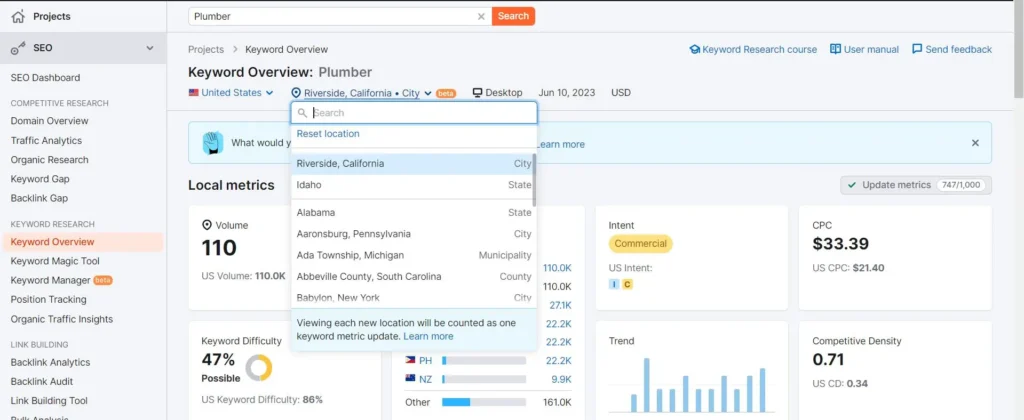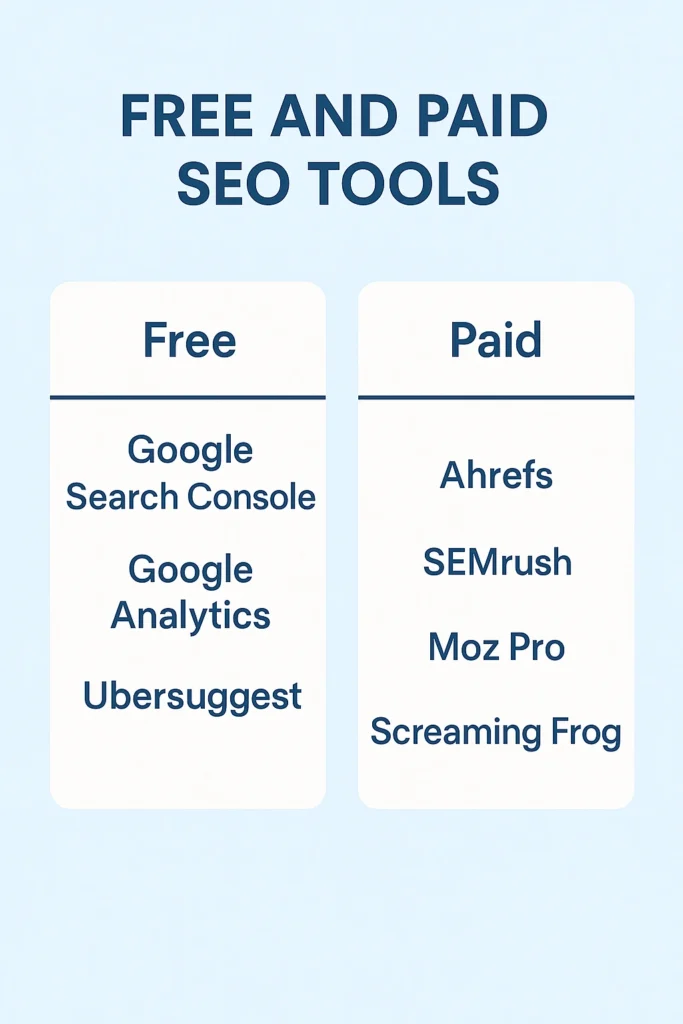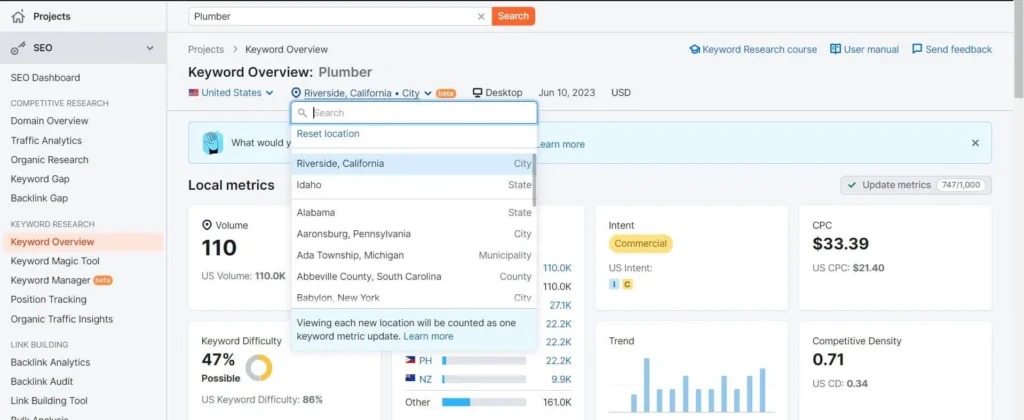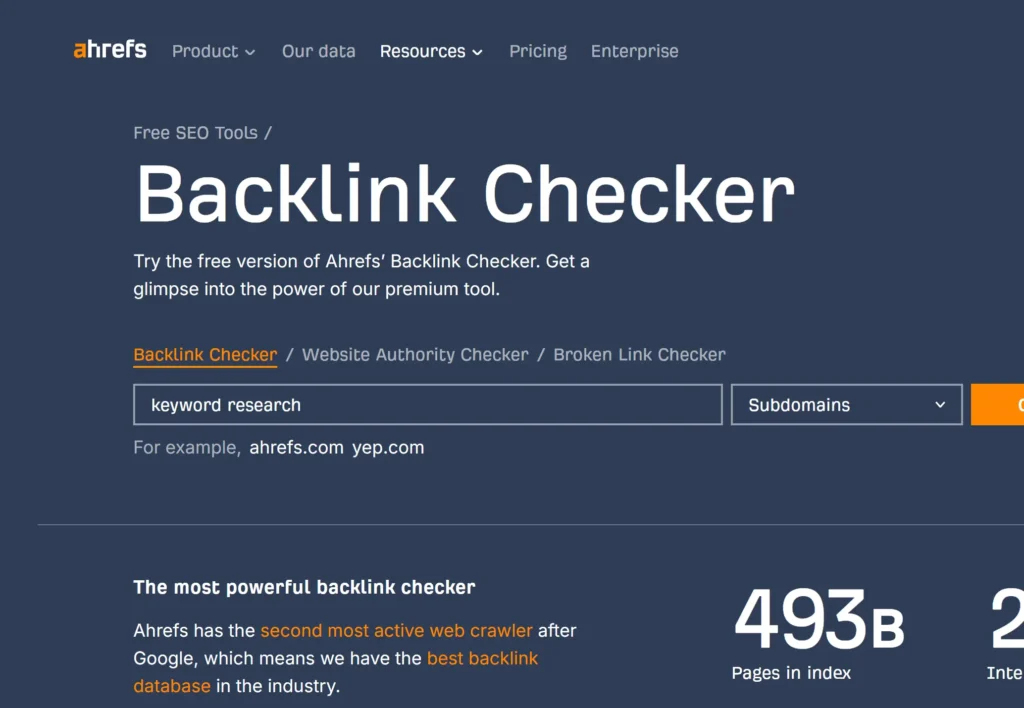Introduction to Keyword Research; Step-by step strategies for sure ranking
Many users find keywords, target them in their blog posts or content, but don’t get results even after consuming so much time in this field and without it, we there is no other way to start and gain optimization results. So how to do it in a smart and quick way is an important question, which will be uncovered here in a complete step-by-step guide. Just follow it and enjoy results more than your expectation.

Keyword research is the foundation of Search engine optimization and it is the most crucial step to invest time on it, before doing the other things like writing content, onpage and offpage SEO. Most sites can’t get their desired results, when they are being run on just ideas, without planning and investing time properly. Keywords are basically the terms your customers enter in the search bar, for searching anything specific like reading informational blogs, to buy products or services etc. This is the main duty for any marketer or SEO specialist to find and analyze these terms, to align their content with these queries. In this way, Google will understand the purpose behind it and rank your content for related keywords, entered by users.
There are mainly two reasons why a site is not ranked, even after researching keywords and these are not finding low-competitive long-tail keywords or not meeting the clients’ intent. For more details about them and how to do it, the details are given below, just read for some minutes and you will worth your time.
What is the importance of Keyword research?
Keyword research is done to find the searching terms being used by your audience on Google and in this way, you will have idea about what people are searching for now a days. If you are targeting other keywords which are not being searched, what will be the spot of your site, even after creating so much valuable content. Google first understand the users’ intent, then it displays a list of related of sites to meet his requirements in a concise way. So, you will have topic or content ideas about which you have to write.

On the other side, if you are consuming time, but just finding some high-competition keywords, there will be ranked high-authority and quality sites, so no spot for your site in this list too. Hence, by doing this properly, you find low-competitive keywords and there will be low-authority sites for these queries, hence you will find sweet-spot and get ranked immediately, on sure-basis. The other advantage is we can also analyze the competitor sites in this list, find a spot and can fix our business there. Then, these keywords can be used in writing content, in onpage and offpage SEO etc.
The benifits of doing it are given below:
Trending insights:
When you are writing on a specific topic or selling any product or service online, then you can find about the topics which are trending now or being searched by the people. Later, target these keywords or topics and get immediate traffic boost.
Originality and not just content:
By doing proper research, you will find the topics people are searching and then covering them completely from each aspect means traffic will be land on your site. Without it, writing any post will no mean at all.
Traffic Boosting and increased conversion rate:
After targeting the top and less-competitive keywords and writing relevant posts, Google must rank this site and more customers will increase the traffic. When they will be satisfied with the content, they will convert into leads automatically, as come with this interest in mind.
Types of Keywords you must have idea:
As we are moving constantly and this is important to have theoretical and basic knowledge about anything, before practical steps, same like here. Before telling you about how to do it effectively, we must know about the types of keywords, so when we are doing it step-by-step, there are no confusions at all.
There are basically three types of keywords, but two of them you can target for high rankings:
Short keywords:
There are many short terms, people are searching for and usually contain one to two words “dog” for example and you can not usually understand why the user has entered these types of keywords. The other thing is these types of keywords are high-competitive, normally unable to rank for, as many top sites are there in the SERP. so you should not target these types of keywords at the start, even they are related to your site or topic.
Long-tail keywords:
These types of keywords have low-volume and less-competition at all, as bigger sites underestimate them ocassionally, and finding and targeting these keywords can get you better and sure ranking results. The other thing is a person have clear idea about the purpose behind these keys, dogs food in winter” for instance. Here, the customer wants to ask about which food should he give to pets in the winter or may be he wants to buy it from his location.
Related keywords:
After using long-tail keywords in a field, there can be other related keywords to target for, that are not directly linked with the niche of the site, but can benifit a site from relevant users. For example, “How to secure farm house” is a keyword and you can target it in a site, related to dogs. These are also easy to rank and can benifit your audience too, so you can be authority by covering your niche from each aspect.
Top Free and Paid Keyword Research Tools You Should Know About.
As you have now idea about the types of keywords and its importance, now we are here for practical steps, like an expert.
Before moving forward, we will introduce here about different tools and how you can use them, so you do proper practice and use these free or paid tools. USually, there will be questions related to your niche or topic ideas in the first three, but they are equally important for searching keywords too, especiallt the first. The next are specifically for related and long-tail keywords, and some can be paid like Semrush and Ahrefs (premium tools).

1. Google Recommendations:
When you have a niche or topic, first of all you have to write all the main and related words like if there is a site giving information about pets, the main words you can select like dogs, cats etc. Then write these words in the Google search bar one-by-one and it will give a list of related keywords or questions, people are searching for. These are relevant topics and trending ideas in your niche and you can list down them. Also, there is a section “people also ask” here, for recommendations.

2. Answer the Public Tool:
It is another tool for finding queries, related to any main or primary keyword and it will give us the topic ideas, to cover them in a detailed post. If you have lack of ideas, you can use this free tool for searching the questions. Just type a keyword, single or long, and see the magic. Remember one thing, you will have limited option in free version on daily-basis.
3. Also Asked:
It is an alternative to the above tool “answer the public”, if you can’t find enough topics, can also use it in the same way as written above and it has also almost 10 total monthly searches option, so don’t use it blindly.
Till here, we can only find keywords without any criteria. The next are for noticing specific criteria like volume, difficulty etc.
4. Google Keyword planner:
It is the tool, developed by Google itself, especially for advertisers, so they can find relevant keywords for targeting in the Google ads. But you can also find these keywords for targeting them in your content organically, as they are equally important. Here, an average volume is also given, not in exact form, but in a range like “20k-30k” and it is the number of searches being done on monthly-basis. Further, there is also given difficulty level or competition, ranging from low to high and if a keyword is marked low, it means it can be targeted in the ads, as well as in the content.
Just open it, write an already searched keyword and see the recommendations and the criteria free of cost. As a newbie, you should start from low keywords, then move to high.
5. Keyword Research using Semrush:
Semrush is a paid and pro tool, used for many SEO purposes, including keyword research. It will also give you all the related terms with difficulties too. For finding related keywords, simply go to the keyword magic tool, enter a root keyword and enter and it will give you all the related keywords. Now there are more options too like broad match, set filters, phrase match and questions too. This is used for targeting low-competitive keywords for sure rankings.

6. Ahrefs keyword researching Tool:
Ahrefs is the most acceptable, authentic and most advanced tool in the SEO world and most experts use this tool for their clients’ marketing, same like DipRootseo company. It gives you less-competitive and highly rankable topic ideas in a way that no other can give you, that’s why it is so much costly. But when it gives results, all the investment is backed immediately. It has many sections like Semrush, one is keywords explorer, here you will use the same strategy, put a seed keyword and record a list of all related keywords.

You can also consider Ubbersuggest tool, by Neil Patel.
How to do Keyword Research effectively? A strategic plan
This is mostly the time-taking and the most vital part of SEO, so needs proper planning and execution. The strategy for sure ranking is given below:
Think about relevant and creative ideas:
First of all, you have a niche or topic of site in your mind, so you think about the other main and related keywords related to it and make a record. For example, if you have a local restaurant site, you can think about the ways people can search like best restaurant in a city and same like that. In this way, you will find some 5-10 keywords and later on you can also use these keywords to find other related keywords.
These keywords can be of four basic types:
Informational
The keywords, where users want to find information related to a topic, for example, he write “How to do keyword research”, it is informational, as the client is here for some guidance on the ways and a site must offer him educational content.
Commercial
These types of keywords are entered, when a customer wants to buy some product or service etc. If you find one of them and are offering something, you must target them and write the content.
Navigational
These are the type of terms, where users enter a keyword on Google, with intent to move to a brand site directly. For instance, a person writes “wallmart”, it means he want to visit it and Google will display it in front from of him.
Look for keywords your site is already ranking for:
When you have some creative keywords and a site or some posts, now you have to analyze your own site, using any tool like Semrush or Ahrefs or Ubbersuggest. You will have a list of phrases, your site is already ranking for and will list down them. If no keywords or less are being targeted, no need to worry as a newbie.
You can do this by opening any tool, Semrush or Ahrefs, and look there for a section “site explorer”, paste your site link and you will have a list of your iwn keywords.
Competitors Analysis:
Now that, you have a list of your site matching queries, now do competitors analysis and find their top keywords, so you have idea about them and can target them.
For this, first type a keyword in Google and there will be 10 results in the Search engine search results, choose some most relevant sites and paste them in Ahrefs or Semrush “site explorer” section and note down the keywords one by one, although some will be repeated. our experts are also available for complete site audit and report and proper competitors analysis
Find Topic ideas:
Now that you have a list of some keywords, you need some topic ideas or questions and you can find it by using specific tools like Google search results, answer the public and Also asked free tools, but most recommended is Google keyword planner. From these free tools, you will have a list of related questions and ideas, with others.
Find related keywords:
Now, for almost all the related kws, you have to use paid tools like Semrush or Ahrefs or Ubbersuggest and keyword planner and google search bar can also be used for this purpose freely. You have to invest time on these free resources. Now collect these keywords too and mix with the already written ones. Now we have a variety of such related terms, for analyzing and targeting them in the content.
Search and think for Local Keywords:
If you have a local business site like a restaurant etc, you must make appearance on Google, otherwise can skip this step, if offering services or doing some thing online, independent of location. For this, first use creativity and think how people can search about your business in a specific location like “Top quality restaurants near me” or use tools to find them and make a record.
Keywords Analyzation and finalization:
What to do, after having a variety of related terms is an important question and here is the proven technique, recommended and implemented by DipRootseo experts.

Volume
The first criteria to be checked is to check the volume or monthly searches for all the listed items, you can skip it for the results come from keyword planner, as this field is already written. For this, the most recommended tool is keyword everywhere and in this way, we have idea whether a keyword is being searched or not. If yes, how much times.
Keyword Difficulty
Keyword Difficulty is the scale through which we can have idea about how much a keyword will take time to rank or whether it is possible or not to rank it. You have to write KD for all the list and for this, the suggested tool is moz, just enter a keyword and it will show it, just below it. For a phrase with KD less than 20 and a good volume, it is good to start.
Use Google Trends
Google trend is used for trending ideas, related to a niche. You have to enter your listed words one by one here and check for the trends, if it is good, go for it. If it is not good, even with high-volume and low-difficulty, it means people are not searching for it now. So, your efforts for that can be in vain.
Check for Location
If your site is location-based, you have to check wheteher or not people searching in that location. If they are not searching in that location and you have services in those areas, no results will be get.
Check for Search Results (SERP):
This is the final and most crucial part, as you will get idea about the users intent, related to a keyword. For this, simply put keywords one-by-one and check the ads at the top and then at the organic results. Look whether they are focusing on selling something like services or products or information-based and understand the purpose behind it, also make a record in the list.
If the keywords are so good, well-researched and quality, but the content is not fulfilling the users’ intent, the result is in no ranking at all or deranking. So understanding, recording and fulfilling it in the content is crucial.
On basis of them, you will have now some best keywords, targeting them will get better and immediate results, on sure basis.
Keywords Analyzation:
Now the final step is to analyze them on the basis of volume and especially difficulty level, remove some keywords and make a list having almost 10 recommendation, with a mixture of low, medium and high volume. Also write about the intent in front of each, and if you have an existing site and want to rank its pages, then also paste that page URL with respected keyword.
Now after it, the next step is to write the quality and intent-based content, this is not a static list, but needs regular updation there and in content, as Google and customers love up-to-date and well-optimized content.
Mistakes to avoid while using them in the content:
When there is a complete list is available and people want to use it in writing the posts, they commit some mistakes frequently, results in penalizing or not ranking as a whole. These common two mistakes are given below, so remember and follow at any cost, to be more successful
- Keywords Stuffing: The old technique was, writers used some keywords like the main keyword again and again in a content, this is called stuffing and it was so positive and successful technique to be ranked. Now, this has been outdated and doesn’t work. Rather, it will damage a site, as Google is evolving its algorithms day by day. While writing content, use these queries in a natural way and focus on quality and intent of users.
- Keyword Cannibalization: It is another big mistake, when a site’s two or more pages are competing with one another on diffeent keywords, with same intent. Google can’t understand about the term, for which a page has been targeted. This creates a largest trouble and results in deranking. If a person needs this strategy in a case, he can use canonical tags for the original one.
Effective AI usage in Keyword Research:
Mostly people are worried and confused after AI era like chatgpt etc and said SEO has no future and they are completely wrong. We can leverage this opportunity and can grow well, if use it effectively and as an assistant. Instead, when we have a manual list in our hand, we can use Semrush or Ahrefs AI generative ideas for purifications, get new and trendy results, and to understand the users’ intent. Your responsibility is to use it one and you can also take Semrush or Ahrefs generative tools or Chatgpt or Google’s Gemini tool, even can take important ideas about the content topics. So AI is not a danger, it is an opportunity same like industrial evolution in 80s.
For Ecommerce Business:
In Ecommerce site structure and finding keyphrases, you will use the same techniques like discussed above in this article. Imagine and research the keywords related to a product or service, using Google, free and paid tools. Focus on transactional keys and intent of these customers is to buy services or products “gaming laptop”, for instance.
Keywords for Youtube:
For youtube, we have to use a different strategy to rank our pages or site. These types of keywords are informational mostly, as people want to watch the videos to educate themselves mostly. For research, Tubebuddy tool can be used, with volume listing there. Next, we have to align our content strategy with these search terms and this will cause for increase in the number of viewers and subscribers, an ultimate goal.
Are you ready? Just start now
Keywords have the same ability and power in ranking a website like before, with some changing methods, even we can be benefited more, if analyze and use them wisely and content is quality-based. For this, simply go to Google and type one of your main keyword in your mind, it will give suggestion, then do competitors analysis and find their ranking phrases, next use tools like Semrush, Ahrefs or keyword planner and you have plenty of keywords. Now check the intent for each of them and then analyze them one by one on the basis of volume and difficulty. That’s all.
You can also contact diprootseo support to get our professional seo services, and for proven and quick results.
